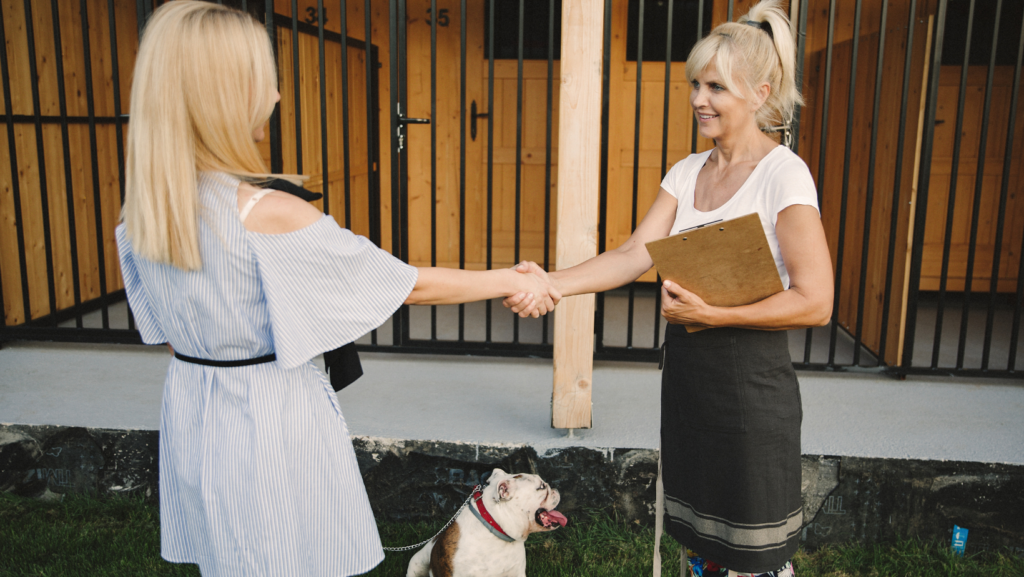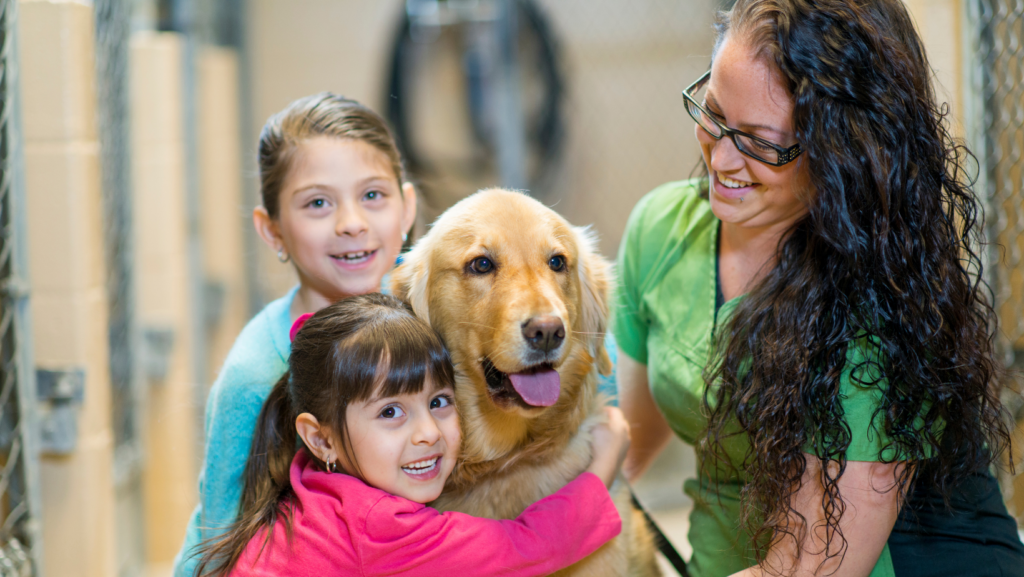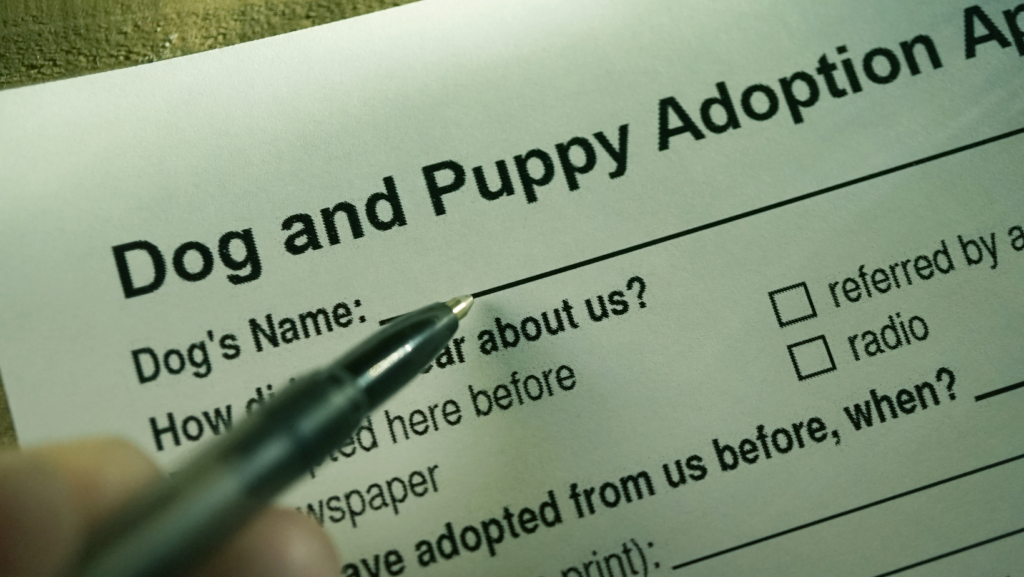If you’re a dog owner, you may wonder when a dog is legally yours. The answer to this question is wholly dependent on the factors and the circumstances that come along surrounding the ownership of the dog.
A few factors that need consideration by the pet owner are proper licensing, up-to-date dog registration, ensuring that their dog has had all the required vaccinations, and the time period a dog is under their care.
These factors depend on the area where you reside and the rules and regulations that comprise all these factors. The license serves as proof of ownership and can help establish legal ownership in the event of a dispute.
In some cases, if you have been caring for a stray dog for a certain period of time, you can establish legal ownership. Let us begin reading this article that serves all the information on the legalities of owning a dog and the factors we need to consider as pet owners/parents.
Why Is It Mandatory To Have Legal Ownership?

Legal pet ownership is essential for several reasons. Firstly, it establishes ownership rights and responsibilities for the animal. When you legally own a pet, you become responsible for its care and well-being, including providing food, shelter, and medical care. In return, you have the right to make decisions about the animal’s welfare, including where it lives and who cares for it.
Secondly, legal pet ownership ensures that animals are protected under the law. Many countries have laws that protect animals from cruelty and neglect, and owning a pet legally means that you are obligated to follow these laws. This includes providing adequate food, water, shelter, and veterinary care, as well as protecting the animal from harm.
Thirdly, legal pet ownership can help prevent disputes over ownership. If you have legal ownership of your pet, it is clear who has the right to make decisions about the animal’s welfare. This can prevent disputes between family members or others who may claim ownership of the animal.
Further in this article, you will be guided through the legal adoption process, so keep reading!
Adoption and Purchase Process
When you decide to adopt or purchase a dog, there are specific legal requirements that you need to fulfill to make the dog legally yours. The process may differ depending on whether you are adopting or purchasing a dog.
1. Adoption Process

If you are adopting a dog from a shelter or rescue organization, you must fill out an adoption application form. This form will ask you to provide certain mandatory information to show whether you are a suitable applicant for adopting a dog. The information includes:
- personal information, such as your name, address, and contact information
- information about your living situation, including whether you own or rent your home and whether you have other pets.
If your application is approved, you will need to sign a pet agreement form and pay any adoption fees. The fees vary, depending on the shelter or rescue organization. Still, they often include things like vet exams, vaccinations, and spaying/neutering.
The dog becomes legally yours once the adoption process is completed and you have signed the necessary paperwork. It is crucial to keep the adoption records and the pet agreement form, as you will need them to prove legal ownership of your dog in the future.
2. Purchase Process
If you are purchasing a dog from an individual or breeder, you must ensure that the transaction is legal and that you receive all the necessary paperwork. You must ask for purchase or adoption records showing that the dog is being sold legally and that it has not been stolen or obtained illegally.
Secondly, make sure that the breeder or individual provides you with a pet agreement form that outlines the terms of the sale and any guarantees or warranties that come with the dog. This form should include information like:
- the dog’s health
- Vaccinations
- any genetic or hereditary conditions that may affect the dog’s health in the future.
When you purchase a dog, you will need to pay a fee that covers the cost of the dog and any additional expenses, such as shipping or delivery fees. It is important to keep all the purchase records and the pet agreement form safe in case you need to prove legal ownership of your dog.
Legal Considerations for Dog Ownership

When you become a dog owner, you must consider the legalities surrounding dog ownership. Understanding the laws around the legal ownership of a dog is essential to ensure that you are the rightful legal owner of your furry friend.
1. Transfer of Ownership
To become the legal owner of a dog, you must complete the necessary legal requirements, such as transfer of ownership and registration. Ownership can be transferred through a sale, adoption, or gifting. It is essential to have proper documentation, such as a bill of sale or adoption papers, to prove that you are the dog’s legal owner.
2. Animal Law

Animal law is a branch of law that deals with animal-related issues. It includes laws governing animal ownership, care, and treatment. Local law and state laws may have different regulations regarding the ownership of dogs, so it is essential to research the laws in your area. Some states require dogs to be licensed and vaccinated against rabies.
3. Custody Disputes
Custody disputes can arise when two or more parties claim dog ownership. In such cases, the court may have to determine the dog’s legal owner. The court will consider various factors, such as who has been taking care of the dog, who has been paying for its expenses, and who has legal documentation proving ownership.
4. Legal Advice

If you need clarification about dog ownership’s legalities, it is always best to seek legal advice. A lawyer specializing in animal law can provide you with the necessary information and guidance to ensure that you are the legal owner of your dog.
Understanding the local and state laws regarding dog ownership is crucial. If a custody dispute arises, the court will consider various factors to determine the dog’s legal owner. Seeking legal advice is always recommended to ensure that you are the rightful legal owner of your furry friend.
Showing Documentation and Proof of Ownership
You must have the proper documentation and proof of ownership to prove that a dog is legally yours. This includes paperwork such as adoption or purchase agreements, registration papers, and vaccination records. It’s essential to keep these documents in a safe place and to have them readily available in case they are needed.
When you adopt or purchase a dog, you should receive paperwork that proves ownership. If you adopt from a shelter, you may need to sign forms and provide identification to verify you are the owner. If you purchase a dog from a breeder, you should receive a bill of sale or other documentation that proves ownership.
In addition to paperwork, you can also prove ownership of a dog through registration. Many cities and states require registered dogs, which can serve as proof of ownership. Register your dog with a national database such as the American Kennel Club (AKC) or the National Dog Registry.
Another way to prove dog ownership is through microchipping and dog tags. Microchipping involves inserting a small chip under the dog’s skin that contains the owner’s contact information. Dog tags on the dog’s collar contain the owner’s contact information. These methods can help you regain possession of your dog if it is lost or stolen.
If your dog is lost or stolen, it’s important to contact animal shelters and private parties in your area to see if they have found your dog. You may need proof of ownership, such as registration or vaccination records, to regain possession of your dog.
Proper Licensing and Registration

When determining the legal ownership of a dog, licensing, and registration are crucial factors. Most states and counties require dog owners to obtain a license and register their pets. This process involves filling out a form and paying a fee, and it helps local authorities keep track of dogs in the area.
You must provide proof of your dog’s rabies vaccination to obtain a license. This is crucial in ensuring your dog’s and others’ safety in the community. In some cases, you may also need to provide proof of spaying or neutering.
Once you have obtained a license, keeping it up to date is important. Most licenses expire after a certain period, and you must renew them to avoid facing any legal issues. Some countries may also require you to always display the license tag on your dog’s collar.
Be sure to check with your local authorities to ensure that you are complying with all necessary regulations. By keeping up with these requirements and ensuring that your dog’s records are accurate and current, you can avoid legal issues and provide the best care for your furry friend.
FAQ’s
The majority of states that also include Alabama, California, and Connecticut, request a 7-day waiting period, whereas Hawaii has only a time period of 48 hours and North Carolina has 72 hours.
If you find any dog that is abandoned or does to belong to you, then straight away, take it to the animal shelter. The animal shelter is the best way of reuniting a lost pet and its owner as it is an obvious place where owners will search for their lost pets.
Pet licenses are issued by the city or country where you live. You can pick up a transfer form at animal shelters or from many veterinarians. You may also be able to download a copy of the form online. The form requires information about you and the new owner, as well as basic information about the pet.
Conclusion
In conclusion, owning a dog is an exciting and rewarding experience, but it comes with legal responsibilities. It is also important to note that leaving your dog alone for more than 24 hours can be considered abandonment.
If a private party finds your dog and is unwilling to return it to you, the court will first determine if you violated any animal cruelty laws, abandoned, mislaid, or lost your dog. Therefore, it is crucial to follow the leash law in your area and ensure that your dog is always under your control.
By following the necessary legal requirements and being a responsible pet owner, you can ensure that your furry friend is legally yours and that you can enjoy many happy years together.
Meet Fabian Wright, our guide into the animal realm at PetLoversArena.com. Having served as an Animal Care Specialist for the Ruwenzori Team at the Kansas City Zoo, he prioritizes conserving exotic species by replicating their habitats. Fabian aspires to share captivating stories of creatures, big and small, through PetLoversArena.com.

